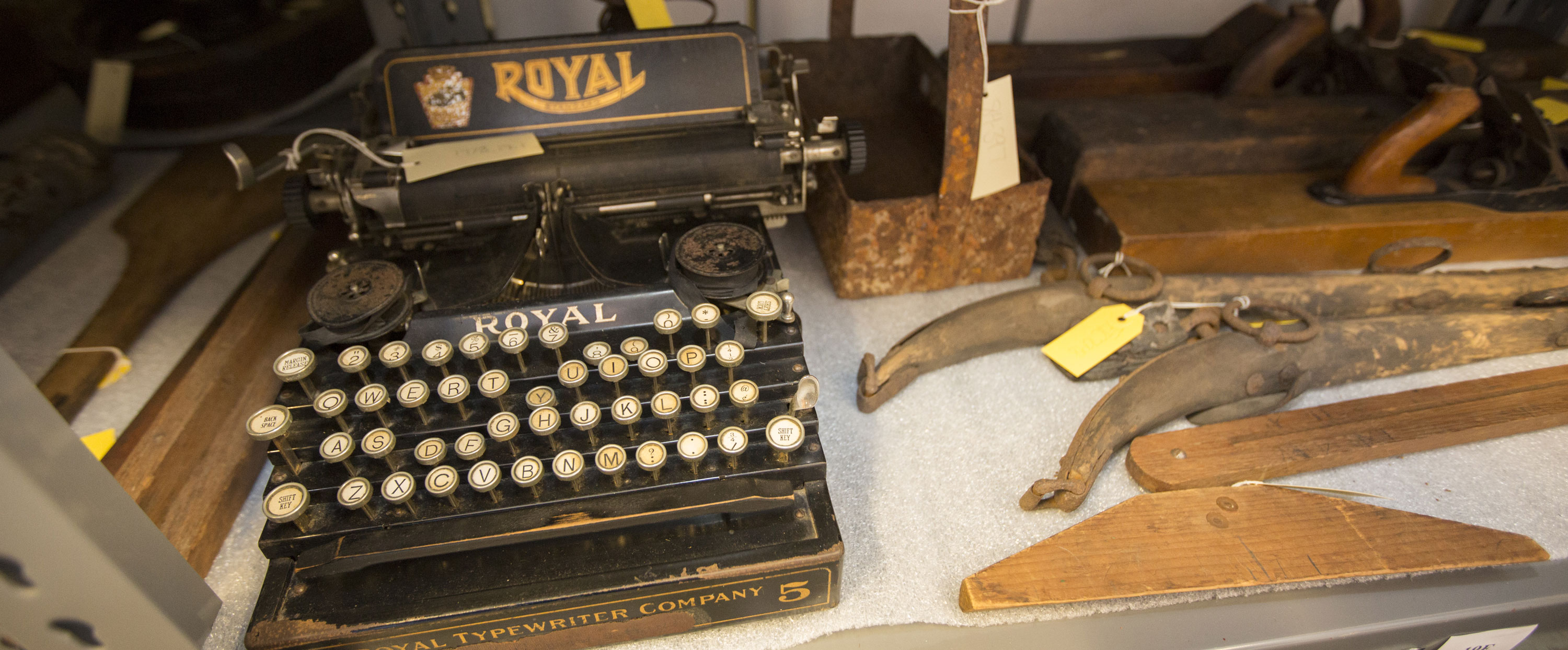Quilts can be large or small, made of rich, expensive fabrics, or just serve as an economical way to repurpose otherwise unusable fabric scraps leftover from other projects. Whether log cabin, patchwork, or crazy, pieced, appliqued, or embroidered, quilts have a rich history in America steeped in tradition. Quilts are utilitarian but also carry great sentimental value. They commemorate major life events, connect families across generations, and are an art form in their own right.
This colorful quilt from the DCHS collection would certainly help keep you warm on a cold winter night. It’s a log cabin pattern variation called Courthouse Steps and dates from approximately the 1870s to the 1890s. It’s made of wools and serges, winter weight clothing fabrics, suiting, and coat materials.
The quilt was donated in 1972 by Emma Trenk. Although we Miss Trenk did not actually make the quilt, we do know she taught social studies at Dubuque Senior High School for 40 years to an estimated 10,000 students. In an interview for a 1970 New York Times article titled If Middle America Needs a Capital, There’s Always Dubuque, Miss Trenk appears to have been progressive in her thinking. At the time, she would have been 69 years old (born in 1901). She tried to teach her mostly white students empathy for those facing racial discrimination, openly acknowledging the challenges of long-held racial stereotypes. “The racial issue was always a hard one for me,” she said. She went on to comment, “I always say if you want revolution, you'd better build something, produce something better—not just destroy. If laws are bad, you work to change them.”
Emma Trenk was also known for growing her own fruits and vegetables, and even made her own grape juice. She became known for her strawberry shortcake and the clothes she bought when traveling the world, perhaps considered eccentric in Dubuque at the time. Instead of watching TV, she preferred reading travel books, National Geographic, Reader’s Digest, and studying birds as a member of the Audubon Club. She built her own outdoor fireplace at her home on Booth Street.
Emma Trenk attended the University of Dubuque. Today, the university offers a scholarship named in her honor for graduates of Dubuque Senior High School.

